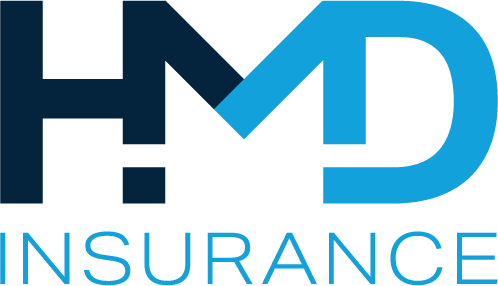
When it comes to strata insurance, many people wonder, “who pays strata insurance deductible?” This question is important for anyone living in a strata property, like an apartment or townhouse. The deductible is the amount of money that must be paid before the insurance company covers the rest of a claim. Understanding who is responsible for this cost can help residents know their financial responsibilities and avoid confusion during a claim. In this blog, we will explore how strata insurance deductibles work and who is typically responsible for paying them.
Who Pays Strata Insurance Deductible?
When a strata building needs to make an insurance claim, there is usually a deductible that must be paid before the insurance company will cover the rest of the costs. The question of who pays this deductible can be a bit confusing, but it’s important to understand how it works.
In most cases, the strata corporation is responsible for paying the deductible. This means that the money comes from the strata’s insurance policy and is taken out of the strata’s funds. The strata corporation then has the option of trying to recover the cost of the deductible from the individual unit owner or owners whose actions or negligence led to the insurance claim. However, this can be a complicated process and is not always successful.
In some cases, the strata corporation may decide to pass the cost of the deductible on to the individual unit owners. This is usually done through a special levy, which is an additional fee that all unit owners must pay. The amount each owner pays is typically based on their unit’s size or value. It’s important to note that the strata corporation can only do this if it is allowed by the strata’s bylaws or if the owners vote to approve the special levy.
Factors Affecting Who Pays Strata Insurance Deductibles

Strata insurance is important for buildings like apartments and townhouses. It helps cover damages to the property. However, when there is a claim, there is often a deductible that must be paid before the insurance kicks in. This raises the question: who pays strata insurance deductible? The answer can depend on several factors, including the type of damage and the rules set by the strata council.
One key factor is the cause of the damage. If the damage is due to a common area issue, like a burst pipe in the building, the strata corporation usually pays the deductible. However, if the damage happens inside a unit, such as a leak from a homeowner’s appliance, the owner of that unit may be responsible. This can create confusion about who pays strata insurance deductible, especially if the rules are not clear.
Another important factor is the strata’s bylaws. Each strata has its own set of rules that explain how costs are shared among owners. Some strata may have specific rules about deductibles, while others may not. It is important for owners to read these bylaws carefully. Understanding these rules can help clarify who pays strata insurance deductible and avoid disputes among neighbours.
What Are Strata Insurance Deductible Disputes?
Strata insurance deductible disputes arise when there is a disagreement about who is responsible for paying the deductible amount on a strata corporation’s insurance policy. Typically, when damage occurs in a strata unit and affects common property or other units, the strata corporation’s insurance covers the repair costs. However, the strata corporation may hold the owner of the unit responsible for the deductible, which can be a significant amount, often ranging from $25,000 to $100,000 or more. This situation creates tension between the strata and the unit owner, especially when the owner believes they should not be liable for the deductible.
Under the Strata Property Act, a strata corporation can sue an owner to recover the deductible if the owner is deemed responsible for the damage. Importantly, the law does not require proof of negligence for the owner to be held responsible; simply being the source of the damage is enough. For example, if a dishwasher in a unit overflows and causes water damage, the strata corporation can charge the owner for the deductible, even if the owner did not act carelessly. This leads to the question of who pays strata insurance deductible, as owners often find themselves liable for significant costs without clear fault.
Disputes often arise when owners challenge the strata corporation’s decision to charge them for the deductible. Some recent court cases have examined whether the strata’s bylaws require a higher standard of responsibility, such as proving negligence. In some instances, tribunals have sided with owners, stating that without evidence of negligence, the strata cannot enforce the deductible charge. This evolving legal landscape highlights the importance for strata owners to understand their insurance coverage and the potential financial implications of being deemed responsible for damage in their units.
Common Misconceptions About Who Pays Strata Insurance Deductible

One common misconception about who pays strata insurance deductible is that the strata corporation always pays the deductible. In reality, it depends on the situation and the rules of the strata. Sometimes, if the damage is caused by a specific owner’s actions, that owner may be responsible for paying the deductible. This means that if a homeowner accidentally causes a flood, they might have to cover the deductible, not the strata. It is important for owners to understand their responsibilities in these cases.
Another misunderstanding is that all owners share the deductible equally. While this can happen, it is not always the case. Some strata agreements may state that the deductible is divided among all owners, while others may assign it to the person responsible for the damage. This can lead to disputes if everyone is not clear on the rules. Owners should read their strata bylaws carefully to know who pays strata insurance deductible in different situations.
Tips For Strata Owners On How to Protect Themselves
Strata owners must know how to protect themselves, especially when it comes to insurance. If there is damage to the building, the strata corporation usually pays the deductible. However, if the damage is caused by a specific owner’s actions, that owner may have to pay. It’s essential for strata owners to read their insurance policy carefully to understand their responsibilities.
Good communication with other strata owners is vital. It helps everyone stay informed about rules and changes. Owners should hold regular meetings to discuss issues like maintenance and repairs. This way, everyone knows what is happening and can work together to solve problems. If there is a dispute, it is better to talk things out rather than letting issues grow. This teamwork can help prevent costly mistakes and misunderstandings.
Strata owners should keep good records of all important documents. This includes insurance policies, meeting minutes, and any correspondence with the strata corporation. Having these documents organised can help owners when they need to make a claim or address a problem. It is also wise to take photos of any damage or repairs. This evidence can be useful if there are questions about who is responsible for costs, especially regarding who pays strata insurance deductible. Being prepared can save time and stress in the long run.
Conclusion
It is crucial for strata owners to understand who pays strata insurance deductible. While the strata corporation usually covers this cost, there may be situations where an individual owner is responsible, such as if the damage is caused by their actions. To avoid confusion and disputes, strata owners should read their insurance policy carefully, communicate openly with other owners, and keep detailed records of all important documents and correspondence. By taking these steps, strata owners can protect themselves and their investment in the long run.
FAQs
The responsibility of paying the strata insurance deductible usually falls on the strata lot owner.
A strata deductible is the amount that the strata corporation is responsible for paying towards an insurance claim before the coverage kicks in.
Strata fees collected from strata lot owners usually include the cost of strata insurance premiums for the building.
Yes, it is recommended for strata tenants to have personal insurance to protect their belongings and liability in case of damage or accidents.
Yes, a strata insurance broker specialises in providing insurance solutions for strata corporations, which may differ from regular insurers.
A condominium is a type of housing where individual units are owned by residents, and the common areas are owned collectively by the residents who pay strata fees for maintenance and insurance.
The deductible coverage for a strata policy is usually determined by factors such as the building’s age, location, and insurance market conditions.
The contingency reserve fund is used to cover unexpected expenses, such as a portion of the strata deductible in case of an insurance claim.





